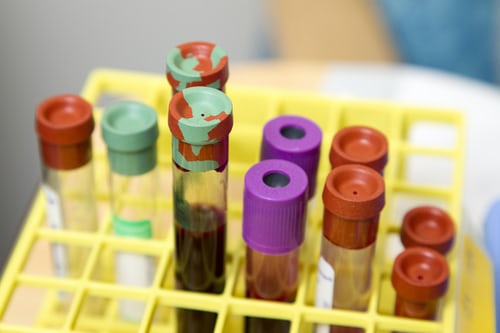What are the different types of Pathology Tests?
Pathology is the branch of science that deals with identifying the different problems or pathogens that cause issues in the body. The study of the disease that causes issues in the body helps in diagnosing the issues such as signs, symptoms, causes and the diagnosis of the diseases.
There are many types of pathology tests that help in identifying different issues either in blood, tissues, urine, stool, sputum, etc. Pathology tests may be recommended by the doctor and one can easily search for ‘Pathological labs near me’ and choose one of the many different pathology labs near me (the patient).
The treatment course of a disease is decided by the results of a pathological test and therefore, it helps in treating the various diseases that cause the issues. Pathology tests are an important part of the medical testing branch.
Types of Pathology Tests
When a customer searches for ‘Pathological labs near me’, there are many pathological labs that are listed. The type of pathology test chosen is based on the type of symptoms and the disease that affects the patient. On a large basis, pathology tests are divided into the following groups:
1. Chemical Pathology
Chemical Pathology is the branch of pathology that deals with the chemicals that are present in the cells and the tissues in the body. Using various other chemicals, chemical pathology detects the presence of chemicals in the tissues of the body.
2. Anatomical Pathology
Anatomical pathology helps in detecting the issues from the tissues that are removed from the body. A sub-branch of anatomical pathology is cytopathology which deals with diseases on the cellular level.
3. Medical Microbiology
Medical microbiology studies the effect of bacteria, viruses, fungi and parasites on the body and the diagnosis and the cause of certain diseases in the body because of these germs.
4. Forensic Pathology
Forensic pathology deals with crime-based investigations when an unexplained situation is presented and the medical researchers need to find the causes of death in the patient.
5. Clinical Pathology
Clinical Pathology deals with diagnosing diseases at a laboratory level. This includes a variety of tests varying from chemical, anatomical and medical microbiology testing.
6. Immunopathology
Immunopathology helps in detecting the issues at the immunity level and studying the response of the immune system for diagnosing the diseases in the body.
7. Genetic Pathology
Genetic Pathology deals with the identification and diagnosis of diseases at the genetic level.
8. Hematology
Hematology is the branch of Pathological testing that deals with the identification and diagnosis of blood-related disorders in the patient.
Functions of Pathology Testing
Pathological Testing is extremely useful for identifying the exact cause of various diseases. Pathological testing is used by labs to determine the exact cause of the disease and therefore helps the doctors and specialists to select the course of the treatment that can be offered to the patients. There are other benefits to Pathological Testing:
● For Future Health Risk
Pathological testing can prevent diseases in suspecting patients – those who are at high risk for developing certain disorders can undertake pathological testing to identify the risks and start a treatment course accordingly.
● Prognosis
Prognosis is charting the course of the disease in the patient – pathological testing helps in identifying the likely events that may lead to the disease in the future.
● Monitoring the disease
Pathological testing can help doctors in understanding whether the treatment and medication are working for the patient.

